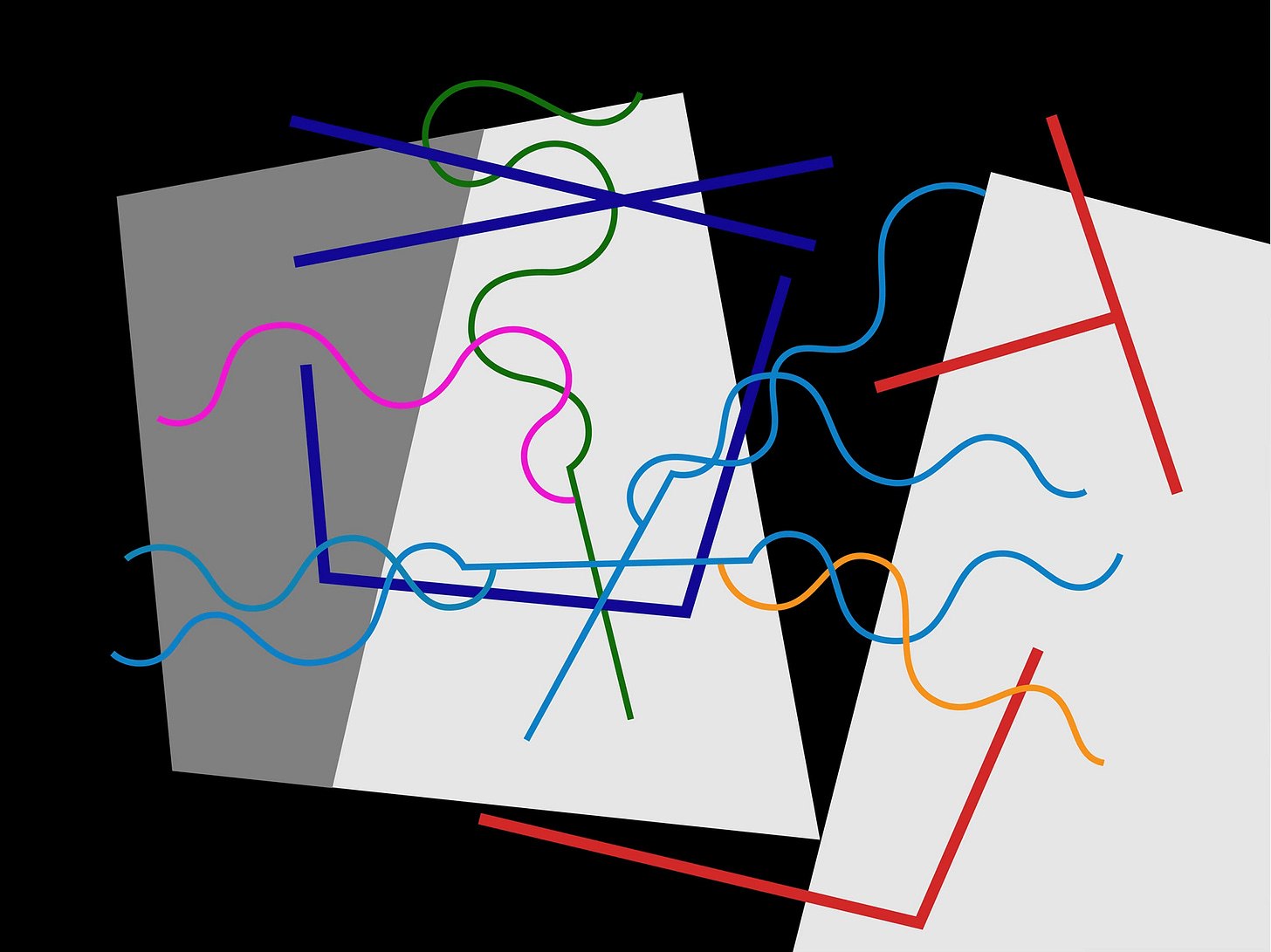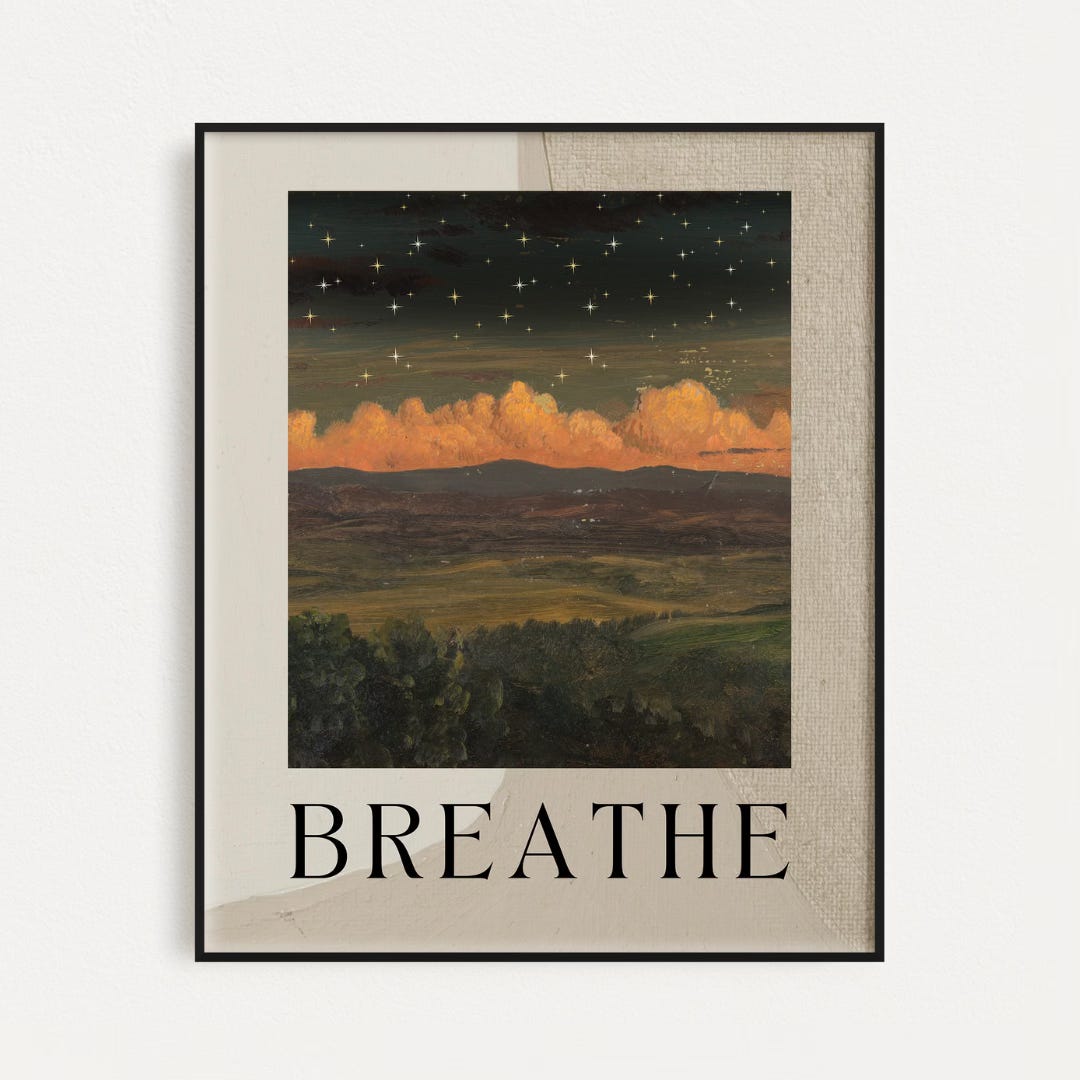Drowning in Updates, Thirsting for Connection
We are simultaneously surviving a connection deficit and an exposure surplus.
"Why didn't you tell me you were so cool?"
I get some variation of this question fairly often—not because people think that I'm overwhelmingly cool after spending time with me, but because of the assumptions that they make about me when they realize that I have over half a million followers on Instagram.
People tell me that I'm unnecessarily humble because I rarely talk about my accomplishments in casual conversation, but I don't think that's the right way to describe my thought process.
It's more accurate to say that I'd rather meet people when they're positioned to see me as I am, instead of making assumptions about me because of my follower count or my most recent post. It's not about appearing humble; it's about creating the conditions for genuine connection.
I like deepening relationships with people who think of me as a human being, first.
I'm willing to bet that the conversation we could have about shared interests, mutual connections, or the topic at hand will create a richer foundation than one built on the scaffolding of social proof.
I have no problem talking about what I've built. I know how to sell myself. I know how to pop my shit. I know when it's time to stick out my chest, and I enjoy talking about my accomplishments in the right spaces—but work is not my life, and I am not my work.
I crave connection more than validation or admiration—perhaps because genuine connection is a rare commodity. It's no wonder, given how many fragments of people's lives we can scroll past as soon as we unlock our phones to open our social media platform of choice.
I know the names of my college friends' kids, even though we haven't spoken directly since 2013. I know where people vacationed last summer, but couldn't tell you a single thing about the lives that they needed a vacation from.
"People we know" are becoming "people we knew", and we can't even recognize the shift because we still see so much of what they share online.
We are simultaneously surviving a connection deficit and an exposure surplus. We've traded depth for breadth. We've become strangers with archives of each other's lives—drowning in updates, but rarely quenching our thirst for true connection.
I don't think that social media is inherently bad. As someone who is old enough to remember life before social media but young enough to be a digital native, I can see both sides of the equation.
Paradoxically, some of my favorite connection-centered moments of 2025 come from opposite ends of the spectrum: leading a phone-free mindfulness retreat at the Kripalu Center for Yoga, and staying up late to laugh and commiserate in an Instagram group chat full of fellow writers that I've never met in person.
Social media isn't the root of our connection deficit, but it creates a remarkably well-oiled slippery slope towards empty, surface-level relationships. When we are not thoughtful about the way that we navigate being in relationship with people, online and IRL, gravity pulls us downhill, away from connection and towards the illusion of intimacy.
As an avid over-thinker, one of my favorite pastimes is imagining ways that I could have responded differently during social interactions.
The next time someone asks me their version of "why didn't you tell me" after learning about my social media following, I might follow up with a question of my own— "would that number have changed the way that you see the person sitting in front of you?"
Because ultimately, just as I am not my work, I am not my follower count.
And in a world where we're drowning in updates but thirsting for connection, I'd rather build relationships on the richness of genuine conversation than the scaffolding of social proof.
How do we swim against the current of superficial connection?
I've found a few practices that help:
Create intentional friction.
The seamlessness of digital interaction is a gift and its curse.
Sometimes meaningful connection requires deliberate interruption of the patterns that allow us to navigate life on autopilot.
One of my friends, a fellow writer, calls me every few weeks when I cross his mind. Sometimes I'll hear him catching his breath as he rides his exercise bike. Other days, he'll interrupt our conversation with a "hold on bro" so he can make sure his kids are ok.
These calls aren't scheduled, structured, or polished—they just are. It would be more convenient for us to text each other, but the friction in our conversations makes it easier for us to sidestep all of the formalities en route to genuine connection.
The inconvenience is a small price for the depth that follows. There's an unmistakable difference between a perfectly crafted message and the stumbling, beautiful reality of two dads, figuring it out in real time.
Share vulnerabilities, not just victories.
The algorithm may reward our highlight reels and wise reflections, but our hearts respond to honest disclosure.
The most important post I made on social media this year had nothing to do with my accomplishments, or my book, or my art—it was a genuine cry for help. I needed to find a new business manager.
After exhausting my immediate network, I reluctantly shared a public LinkedIn post asking for help.
Not only did I get a ton of amazing leads on potential managers, I also got messages from people I had lost touch with—people who just wanted to catch up, people who felt led to tell me that my vulnerability helped them to open up, people who could relate to what I was going through.
These exchanges forged and strengthened connections that transcended the digital space—some evolving into phone calls, coffee meetings, and collaborations built on mutual respect for each other's complete humanity, not just our polished personas.
When someone responds to vulnerability with their own, we cross the bridge from audience members to actual friends.
These moments of genuine camaraderie create a different kind of currency—one that accumulates in remembered conversations rather than notification counts.
Embrace the unpolished present.
Some of my richest connections happen during walks where conversation wanders, or in spaces where our phones are simply away.
There's something powerful about being fully present with another person without the potential for documentation or distraction—experiencing a moment that exists solely in memory rather than in feeds.
I've started to cherish the undocumented moments as the most precious ones. The four-hour dinner conversation where plates were cleared and replaced with coffee cups, where topics ranged from childhood memories to existential questions, where no one stopped to capture the sunset through the restaurant window because we were too engrossed in each other's stories.
Or the impromptu gathering where phones ended up stacked in the center of the table, forgotten as we lost ourselves in the rare joy of collective, undiluted attention.
These experiences have a different texture—richer, more immediate, more fully inhabited—than even the most engaging digital exchanges.
The irony isn't lost on me that I'm writing these reflections for an audience composed largely of people that I haven’t met in real life. But maybe that's the point—connection in the digital age doesn’t have to be about rejecting broader platforms entirely. We can use social media intentionally, not as a destination but as a gateway to deeper conversations and connections. The technology is neutral; the consciousness applied to its usage determines whether it enhances or diminishes our humanity.
About the writer:
I’m Michell—I’m a 35-year-old father, husband, and writer. I’m thankful that you’ve taken the time to read my work. Any support you feel led to give in the form of a like, comment, repost, or purchase is deeply appreciated.
You can purchase my book, Eyes On The Road, here.
You can purchase my art, some of which is displayed below, here.






Ahhhh. Every word here is magic. And you are right—technology is neutral, and it can be used to enhance our relationships and uplift us or to disconnect us from ourselves and others in real life.
Creating intentional friction, embracing vulnerabilities, being present. Calling (not just texting) my humans, deepening certain friendships intentionally, staying in the moment when we're together... this is my work too... thank you M...